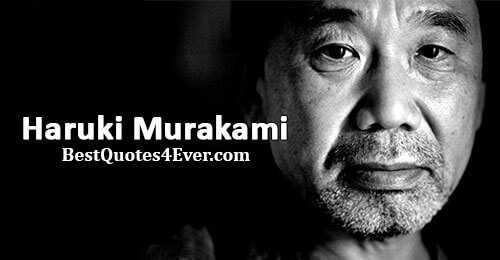Biography
Type: Essayist, Translator
Born: January 12, 1949, Kyoto, Japan
Died:
His first novel, "Hear the Wind Sing", won the Gunzou Literature Prize for budding writers in 1979. He followed this success with two sequels, "Pinball", 1973 and "A Wild Sheep Chase", which all together form “The Trilogy of the Rat.”
Murakami is also the author of the novels "Hard-Boiled Wonderland and the End of the World"; "Norwegian Wood"; "Dance Dance Dance"; "South of the Border", "West of the Sun"; "The Wind-Up Bird Chronicle"; "Sputnik Sweetheart"; "Kafka on the Shore"; "After Dark"; "1Q84"; and "Colorless Tsukuru Tazaki and His Years of Pilgrimage". He has written three short story collections: "The Elephant Vanishes"; "After the Quake; and Blind Willow, Sleeping Woman"; and an illustrated novella, "The Strange Library". Additionally, Murakami has written several works of nonfiction. After the Hanshin earthquake and the Tokyo subway sarin gas attack in 1995, he interviewed surviving victims, as well as members of the religious cult responsible. From these interviews, he published two nonfiction books in Japan, which were selectively combined to form "Underground". He also wrote a series of personal essays on running, entitled "What I Talk About When I Talk About Running".
The most recent of his many international literary honors is the Jerusalem Prize, whose previous recipients include J. M. Coetzee, Milan Kundera, and V. S. Naipaul. Murakami’s work has been translated into more than fifty languages.
Prizes for books:
- 1979: Gunzo Award (best first novel) for Hear the Wind Sing
- 1982: Noma Literary Prize (best newcomer) for A Wild Sheep Chase
- 1985: Tanizaki Prize for Hard-Boiled Wonderland and the End of the World
- 1995: Yomiuri Prize (best novel) for The Wind-Up Bird Chronicle
- 1999: Kuwabara Takeo Prize for Underground
- 2006: World Fantasy Award (best novel) for Kafka on the Shore
- 2006: Frank O'Connor International Short Story Award for Blind Willow, Sleeping Woman




